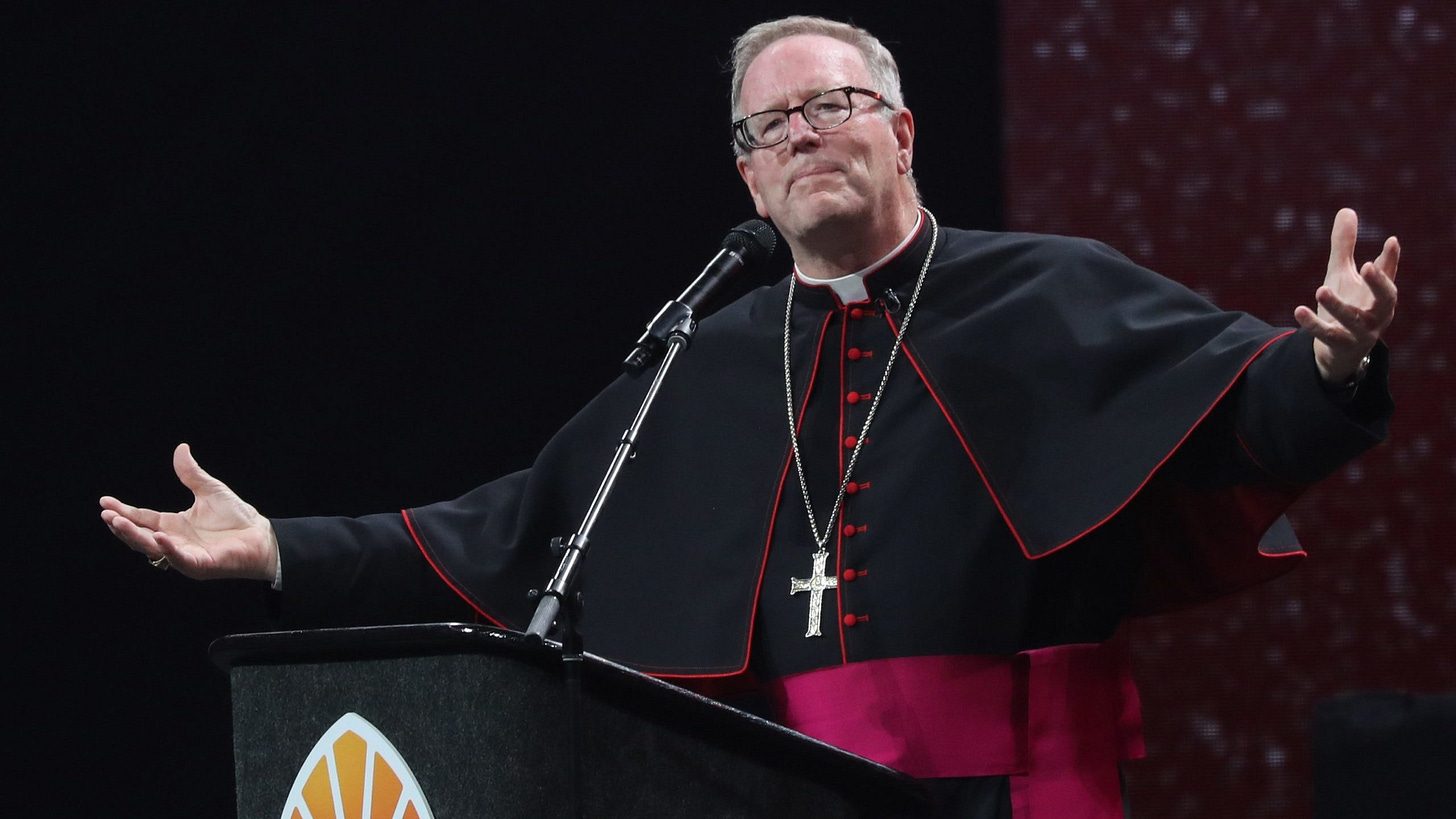Should we have Catholic Influencers?
A guide for the digital Catholic on the digital continent
Recently, with events like the Catholic Creators Conference and the Catholic Influencer Summit at the Vatican—plus some controversies involving Catholic influencers—this topic has entered the broader conversation.
I’ve been creating Catholic content (with dubious success) for nearly a decade, so I've heard virtually every opinion about Catholic influencers and held most of them myself at various points.
The terminology matters.
The word "influencer" emerged in the mid-2010s when people like Kim Kardashian and Dwayne Johnson had millions of followers, and brands used them to influence customers to buy products. The term has fallen out of favor because it feels corporate—people now prefer "creator" since content comes first, not influence.
Still, the original word "influencer" remains important because it reminds us of the original purpose: selling products. When you translate that concept to preaching the gospel, things get complicated. You're taking something invented to sell products and applying it to matters of faith, which creates inherent tension.
We also need to be honest where Catholic content creation sits in the broader landscape. Catholic influencers are barely blips compared to secular ones. The disparity isn't factors of ten it's factors of hundreds. A Catholic creator is considered “small” at 10,000 followers and “successful” if they reach 100,000 followers on any platform. In the real world, true influence begins at 1 million and enters the mainstream at around 10 million.
Very few Catholic voices have the reach of mainstream influencers, and those who do aren't typically considered "Catholic influencers."
For our purposes “Catholic influencer” refers to people creating primarily Catholic content, not political figures like Matt Walsh or Michael Knowles, comedians like James McCann or Jim Gaffigan, or actors like Mark Wahlberg who happen to be Catholic.
Should we have “influencers” at all?
The opinions about Catholic influencers span a wide spectrum.
On one end, some believe we shouldn't have Catholic influencers at all, or that priests specifically shouldn't be influencers because they should focus on piety and prayer.
Others hold the opposite view—that laypeople shouldn't be Catholic influencers because only priests have the authority to speak on matters of faith and Church teaching.
Then there are concerns about monetization. Some argue that Catholic influencers shouldn't make money from their work, or that we can't have Catholic influencers because fame itself is problematic—people shouldn't be allowed to become "that famous."
On the pro-influencer side, people view Catholic creators as a force for good. They argue we should support Catholic creators simply because they're Catholic, that we need more of them, and that they're digital apostles preaching to the digital continent.
I've held many of these opinions to varying degrees over the years, but I don't agree with any of them anymore.
The opinion that Catholic influencers shouldn't exist is the least aligned with reality—they're going to exist regardless, so instead of wringing our hands, we should focus on how to do it well. The same applies to debates about whether priests or laypeople should create content. Content creation is monetizable, and that's going to happen too.
The recent summit at the Vatican indicates the Church is headed in the direction of “influencer as missionary.” But that has its problems, too.
Is an influencer a missionary?
As Bishop Robert Barron puts it, most young people today are “digital natives” who grew up using social media. They practically live their lives on digital platforms. So, much like the Catholic Church sent missionaries to evangelize the natives of the New World, the Church needs to send digital missionaries to evangelize the digital natives.
I’m sympathetic to this because it recognizes a real need: there are people who live their lives on digital platforms who need to be reached. But the analogy has its limits.
First, people don’t actually live on the “digital continent.” They have actual lives where they need real friendships and real community. Digital mission work is not like in-person mission work because it cannot be successful on its own. The digital missionary eventually needs to hand the person off to someone else.
Second, if influencers truly function as missionaries—if their primary purpose is preaching the gospel—then they should live like missionaries. This means committing to simple living, not fundraising beyond basic needs, essentially never selling products, and probably maintaining regular employment while doing Catholic content on the side, like how Saint Paul made tents to fund his ministry.
Third, social media is driven by analytics. Your message must be tailored to algorithms, which by nature give people what they want to hear. Traditional missionaries would find communities and often preach contrary to what people wanted to hear, but algorithms inherently limit you to content people want to consume. This creates a tension: either you adjust your message to the algorithm and become less authentic, or you preach only what people need to hear and sacrifice reach.
So, Catholic influencers can use the analogy of “digital missionaries on the digital continent” but recognize it has limitations.
Ultimately everyone—influencers and consumers alike—need to be clear what an influencer’s job is and how to notice a good one.
Understanding the influencer's job
To evaluate Catholic influencers properly, we need to understand what an influencer's job actually is. This is important even if you're not an influencer yourself. You live in a world trying to influence you, so you need to distinguish good influencers from bad ones.
An influencer’s job is to communicate at scale.
If you strip social media down to its natural state, it's a large-scale conversation. Facebook was built on friendship, MySpace too. Twitter was designed as a public square, LinkedIn as a networking group. All major platforms are conversations at their core.
A conversation is two friends taking turns trying to get each other to understand their point of view. Conversation requires people who care about each other as equals—you can't have genuine conversation with someone who hates you or views you as inferior. It's dialogue where each person shares their perspective, receives the other's thoughts, and responds.
A good influencer then is a person who has conversations with their audience.
Marketing has a concept called an “avatar.” An avatar is an imaginary person (age, education level, gender, likes, dislikes, etc.) Good marketing strategists teach you to think of one specific avatar when creating content. because millions of similar people fit that profile and will feel like your content was created just for them.
A good influencer has an avatar in mind, creates content for them, listens to their response, and adjusts their content accordingly. Good creators talk to people. But it can't be one-sided. One-sided communication is just influence without relationship.
Many people worry about parasocial relationships with influencers. Comedian Bo Burnham stopped creating content because people approached him like they knew him personally. But I think this is actually a function of creating good content—when creators authentically reflect themselves, people naturally feel connected. The problem arises when someone is inauthentic.
How we should evaluate Catholic influencers
Since we can't eliminate Catholic influencers—Pandora’s Box is already open—we need criteria to judge whether someone is being a good or bad content creator. It's not a binary of “are they good or bad” but a spectrum of how good they are and how they could improve.
I propose three criteria based on the transcendentals: Is the content good, is it true, and is it beautiful?
Goodness means the content is dialogical, not one-sided. The content should be uplifting, turning your mind toward what is excellent rather than vicious. When you consume their content, you come away with a sense of fulfillment because it points toward goodness—and ultimately, God is good. Even someone teaching underwater basket weaving can create good content by genuinely teaching their craft and engaging in back-and-forth dialogue like a friend.
Truth asks whether content accurately reflects reality or tries to impose a false reality. Think of the difference between Greek philosophers and sophists. Socrates sought to understand concepts like justice. Sophists didn't care about reality; they used rhetorical tricks to convince people the moon was made of cheese or that they couldn't know their mother loved them. Many political influencers today function like sophists, telling people what they want to hear rather than what's true.
Beauty concerns craftsmanship. If you're a writer, you need to write beautifully. People inherently gravitate toward creators who produce beautiful content—if someone constantly creates ugly videos, you won't watch them. Is the argument well-constructed? Is the writing style engaging? With AI and ChatGPT, creators using copy-paste generated content will fail because people recognize it's not beautiful.
Another aspect of beauty is inspiration. Does the content inspire you toward goodness or make you feel morose and despairing? Beautiful content inspires you to look toward heaven with hope.
Influence is a tool
Discussions about social media content creation tend toward false binaries. A priest dances cringily, and people declare priests shouldn't be influencers. An influencer behaves unethically, and people say we shouldn't have influencers at all. Someone misuses their platform, and people want to eliminate the medium entirely.
But influence is like wealth. It's a tool. If you have it, you're responsible for using it well and will be judged (by God and men) accordingly. Instead of debating whether people should have influence, we should discuss how to use it responsibly.
Fortunately, the Church seems willing to have these conversations. The recent summit for influencers in Rome indicates the Church is interested in engaging with influencers and determining how to do this well. We live in a culture driven by social media, and the Catholic Church needs to be present there. We should focus on conversations about doing it well, not whether we should be doing it at all, because that ship has sailed.







Nice article, Pat!
Great article. Catholicism is about personal relationships within a community which just can’t happen online. These big time influencers often cause people to stay online rather than interact with their own parish community. Your evaluation test of influencers is good. Too many seem to be in it for their own personal glory or for monetary gain. Thank you for this.